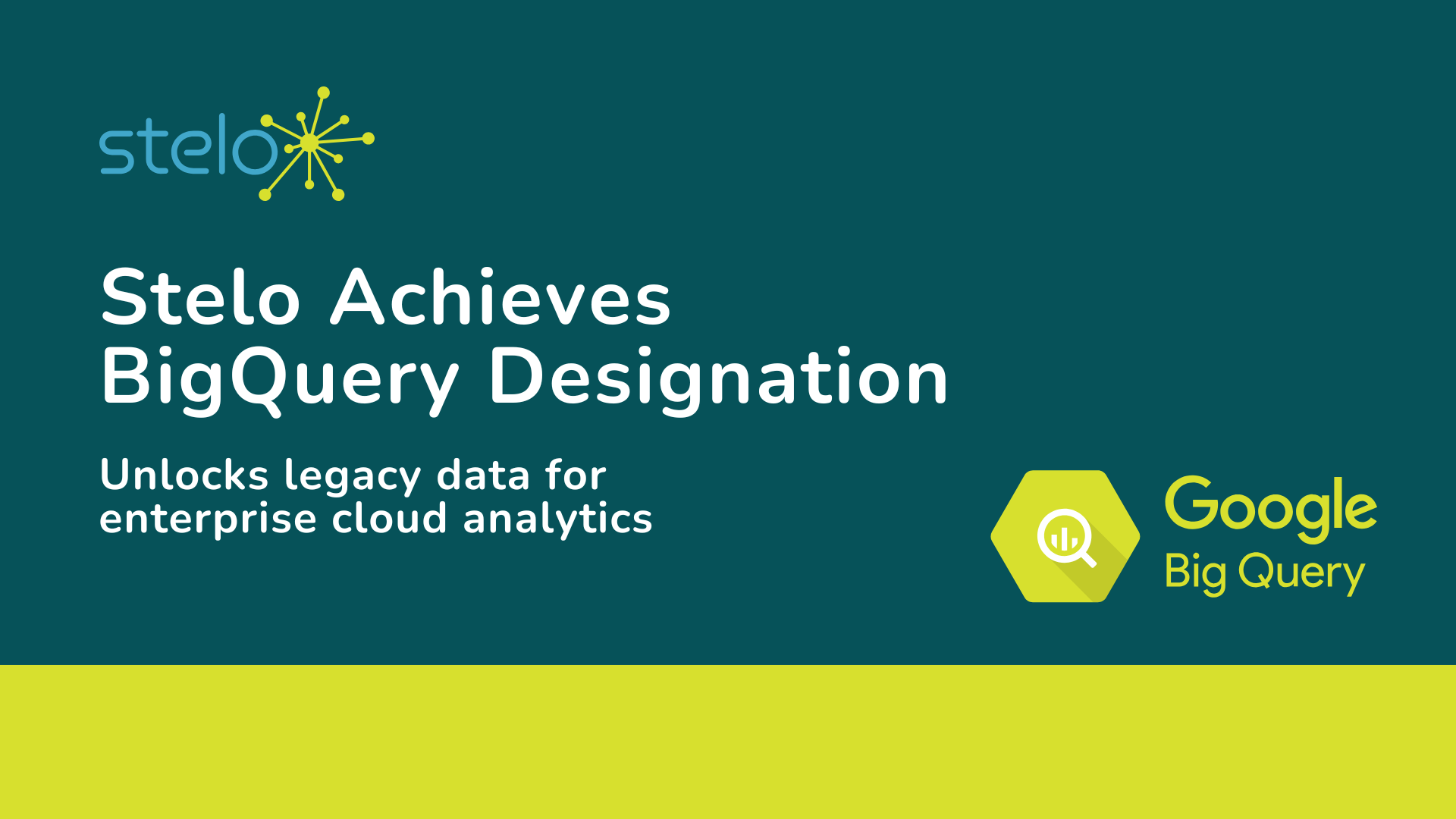Stelo + Oracle

Oracle’s relational database products can process vast amounts of data but extracting that data for downstream processing can burden already highly loaded production systems. Stelo is a cost-efficient, low-impact, and real-time data replication software for Oracle data environments.
Over the last 30+ years, Stelo has evolved alongside databases like Oracle, allowing us to create the most resilient, robust, and efficient solution for offloading heterogeneous source data out of your Oracle database. Stelo’s vendor-agnostic data replication and migration technology is a responsive, agile solution that supports Oracle databases as both sources and destinations.
Stelo can connect all source and destination types for every database, so you can move data from Oracle to anywhere. Stelo also works seamlessly with Data Guard. Easily replicate millions of transactions per hour and transfer data sets over 1TB—without necessitating any production downtime to accommodate. Stelo also makes it easier to handle large JDE data sets.
Connects To
 Expertise
Expertise
Oracle Replication Experts
Oracle GoldenGate customers often find themselves “half-supported” when troubleshooting the non-Oracle halves of replication pairs. Stelo has extensive experience with all supported source and destination platforms to ensure that customers will be supported in all aspects of their replication pairings.
 Customizable
Customizable
Anywhere-to-Anywhere
Avoid vendor lock-in. Stelo uses heterogeneous replication for bi-directional support across all source and destination types. Our open-standards approach allows us to remain vendor-agnostic while providing highly flexible deployment models.
 Quick Setup
Quick Setup
Rapid Deployment
Streamline your deployment plan without costly delays. Stelo typically deploys in less than a day and cuts production time down from months to only weeks.
 Easy-to-Use
Easy-to-Use
Set it and forget it
Simple installation with GUI interface, configuration wizard, and advanced tools makes product setup and operation straightforward, with no programming needed. Once running, Stelo reliably operates in the background without requiring dedicated engineering support to maintain and manage. Alter, add, and drop schema changes are replicated automatically.
 Low Impact
Low Impact
Near-Zero Footprint
Our process provides ultra-low CPU load (less than 1% typical) to minimize production impact and avoid operational disruption. No source or destination software installation required. Only transfer data you need thanks to Dataset Partitioning.
 Cost-Efficient
Cost-Efficient
Unlimited Connections
A single instance can support multiple sources and destinations without additional licensing. The Stelo license model is independent of the number of cores to either the source or destination, so you only pay for the capacity required to support the transaction volume. Your data ecosystem can change over time without additional costs.
 Reliable
Reliable
Automatic Recovery
If a connection is broken, no data is lost. Stelo will automatically resume replication without needing to re-baseline in the event of a connectivity failure.
Integrated Bidirectional Data Replication into the Cloud
The company had a payment processing platform and web apps for customer acquisition running separately on Informix and Oracle that were not yet integrated or aligned. Each platform had three different data structures and they did not want to be locked into a single platform or database in the future. While they created a data model to get alignment in AWS - their cloud data required bidirectional Data Replication between Aurora MySQL and the Informix and Oracle systems still used on the backend.
Stelo’s expert technologists were able to troubleshoot a tricky technical challenge to make Onyx CenterSource's data ecosystem flourish.
FAQ
Stelo is designed to make all deployment steps easy and straight forward with many automatic and automated procedures. You can choose which tables, rows, and columns you want to replicate, ensuring that data is replicated efficiently from one datatype to another without complex programing. A typical deployment has you up-and-running in hours, not days.
This is a key area where you can separate the wheat from the chaff. The best replication solutions deploy in under 24 hours. The worst require a week or more of configuration. Deployment time is also a good way to assess reliability. If the initial configuration is complex and time-consuming, you can expect stability and performance problems to arise in the future.
Baseline copies of data should not require more than 24 hours to create unless you are replicating an unusually large amount of data. If initial customizations take a lot of time upfront, you can expect similar lags when customizing in the future as well. High-performance software does not require much tweaking, and you should be wary of the reliability and accuracy of solutions that require extensive reprogramming.
Stelo can handle large-scale data transfers replication with sub-second latency. A single instance can support multiple sources and destinations without additional licensing. The Stelo model is independent of the number of cores of either the source or destination—so you only pay for the capacity required to support the transaction volume. connections. This cost-efficient method merges source data flows into one stream, and then it is applied to any number of subscribing destinations. Stelo delivers enterprise-level performance without enterprise-level cost.
Unlike trigger-based replication software that can consume quite a bit of production resources, Stelo is built to have a near-zero impact on production databases. It’s deployed on an intermediate server between the source and destination databases, resulting in virtually no resource drain on production infrastructure.
We encourage customers to configure Stelo’s software to create the destination tables on SQL Server and MySQL. In part, this is to ensure the proper mapping of change data captured on the IBM i system and the destination table. Also, if your high availability (HA) software utilizes *AFTER images only for capturing change data, then Stelo’s software must rely upon a synthetic column (the Relative Record Number or "RRN") to uniquely identify the row in the destination table, and it is unlikely that the Oracle JD Edwards (JDE) tool would provide this column. Therefore, it is best to allow Stelo to create the destination, including this column for each table. Alternatively, if the HA software configures *BOTH images in the journals then we can dispense with the RRN column and just utilize any unique index (including a primary key) to identify rows.
Another issue that should be addressed in the planning stage is the use of Unicode datatypes on the destination SQL Server. We strongly encourage customers to use NCHAR/NVARCHAR data types for SQL Server, as this provides the greatest fidelity when mapping data from IBM i EBCDIC to Windows and other non-EBCDIC environments. Our recommendation is to allow Stelo to create the tables and exploit UNICODE data types, and then use the tool to create any additional indexes.
Support Features
Accessible Support
Quick support is available for training, troubleshooting, version updates, and data replication architecture. 24/7 Urgent Incident Support is included in annual subscriptions.
Highly Experienced Team
Stelo’s technologists have more than 30 years' experience developing reliable data software. Whether you need basic support or have a tricky technical challenge, we can work with you to solve any problem.
End-to-End Proficiency
Our team has detailed knowledge of every data platform we support and can troubleshoot end-to-end replication pairing in heterogeneous environments to ensure the pairings are working properly.
Constant Evolution
Unlike some other solutions, Stelo won't go out of date. New source and target types are continuously added through active updates to stay compatible with emerging market requirements.
The Latest from Our Blog

Stelo Achieves BigQuery Designation, Unlocking Legacy Data for Enterprise Cloud Analytics

Unlocking the Power of IBM Db2 for i with Stelo: A Modern Approach to Data Integration

Futureproofing Your Data Management Strategy with NoSQL and Data Streaming

How Stelo V6.3 Helps You Master Data Integration
Get Started
These three steps will help you ensure Stelo works for your needs, then seamlessly deploy your solution.
Schedule a Demo
Our expert consultants will guide you through the functionality of Stelo, using your intended data stores.
Try Stelo
Test the full capability of the software in your own environment for 15 days. No obligations.
Go Live
When you're ready, we can deploy your Stelo instance in under 24 hours with no disruptions to your operations.


